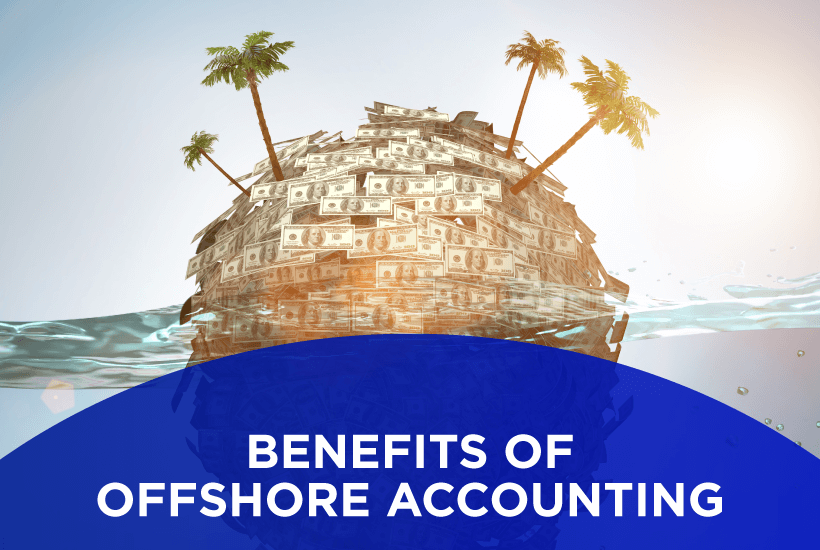Offshore accounting has gained significant attention in a world driven by global opportunities and financial expansion. But what exactly is offshore accounting? How can it benefit you, and what are the key considerations?
If you’re Exploring Financial curious about venturing into offshore accounts, this guide will help you navigate the intricate waters of offshore accounting while shedding light on its intricacies, advantages, and potential pitfalls.
Table of Contents
- What is Offshore Accounting?
- The Advantages of Offshore Accounts
- Key Steps to Open an Offshore Account
- Tax Implications: What You Need to Know
- Is Offshore Accounting Right for You?
- The Future of Offshore Banking
- Offshore Accounting: Debunking Myths
- Implementing Offshore Financial Strategies
- Frequently Asked Questions
What is Offshore Accounting?

Offshore accounting involves managing financial accounts in a foreign country, distinct from your country of residence. It allows individuals and businesses to diversify their financial strategies, access international investment opportunities, and potentially reduce tax liabilities. Essentially, it’s like exploring new economic horizons beyond the borders of your home country.
The Advantages of Offshore Accounts
Diversification: Your Financial Shield
Diversifying your assets across different countries can be a smart move. It acts as a financial shield, reducing risks associated with economic instability in a single country. By holding accounts in multiple jurisdictions, you’re less vulnerable to the fluctuations of a single economy.
Privacy and Asset Protection
Offshore accounts often provide privacy that local accounts might not offer. This can be particularly appealing to those who value financial confidentiality. Additionally, some offshore jurisdictions offer robust legal frameworks that safeguard your assets from lawsuits and creditors.
Legal and Ethical Considerations
While offshore accounts can offer numerous benefits, it’s crucial to tread carefully. Ensure that your offshore endeavors comply with both your home country’s laws and the laws of the offshore jurisdiction. Engaging in illegal or unethical financial practices can lead to severe consequences.
Key Steps to Open an Offshore Account
A. Research: Understand the regulations and requirements of the chosen offshore jurisdiction.
B. Choose a Bank: Select a reputable financial institution known for its offshore services.
C. Documentation: Prepare the necessary documents, including identification and proof of address.
D. Account Setup: Complete the application process, providing all required information.
E. Funding: Transfer funds to your new offshore account.
Tax Implications: What You Need to Know
Tax regulations vary widely among countries. Some offshore jurisdictions offer tax incentives, while others have specific reporting requirements. Consult a tax professional to navigate the complexities and ensure compliance with your home country’s tax laws.
Is Offshore Accounting Right for You?
Whether to open an offshore account depends on your financial goals, risk tolerance, and legal obligations. Consulting financial advisors and legal experts can help you make an informed decision.
The Future of Offshore Banking
As financial markets evolve, offshore banking will likely remain viable for those seeking international financial opportunities and asset protection. However, staying updated on changing regulations is crucial to ensure your offshore endeavors remain compliant.
Offshore Accounting: Debunking Myths
Myth 1: Offshore Accounting is Illegal
Contrary to popular belief, offshore accounting is legal when conducted in compliance with relevant laws and regulations. It is a legitimate financial strategy used by individuals and businesses worldwide.
Myth 2: Offshore Accounts are Only for the Wealthy
Offshore accounts are accessible to a broader demographic. While they offer advantages accountants for high-net-worth individuals, they can also benefit those seeking international investment opportunities and asset protection.
Implementing Offshore Financial Strategies

Offshore Banking and Investment Accounts
Offshore banking provides higher interest rates, currency diversification, and financial privacy opportunities. Additionally, offshore investment accounts open doors to global investment opportunities.
Offshore Company Formation
Establishing an offshore company is a common strategy for businesses seeking to expand internationally. It allows for tax-efficient operations, simplified bureaucracy, and potential access to new markets.
Trusts and Foundations
Trusts and foundations are utilized for estate planning, wealth preservation, and charitable purposes. They offer flexibility and control over the distribution of assets.
Frequently Asked Questions
What are the potential benefits of offshore accounts?
Offshore accounts offer benefits such as asset diversification, increased privacy, and potential tax advantages.
Are offshore accounts only for evading taxes?
While some may misuse them for tax evasion, offshore accounts can be used legally for asset protection and international investment diversification.
Is opening an offshore account a complicated process?
It can be complex due to varying regulations, but it’s manageable with proper research and guidance.
Do I need to be wealthy to open an offshore account?
No, offshore accounts cater to various individuals and businesses, not just the wealthy.
How can I ensure my offshore activities are legal?
A: Consulting financial and legal experts and thoroughly understanding the laws of both your home country and the offshore jurisdiction is essential.




